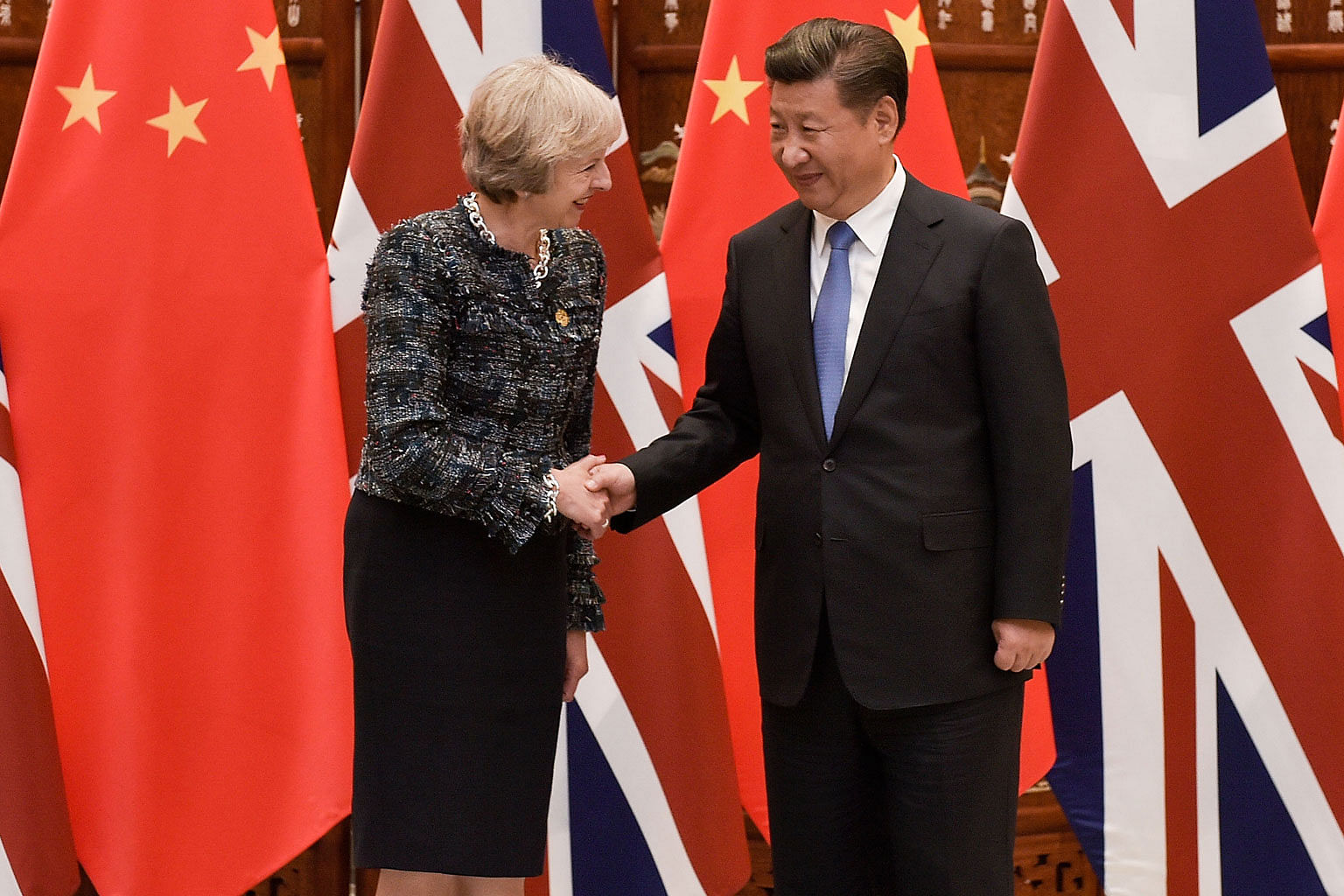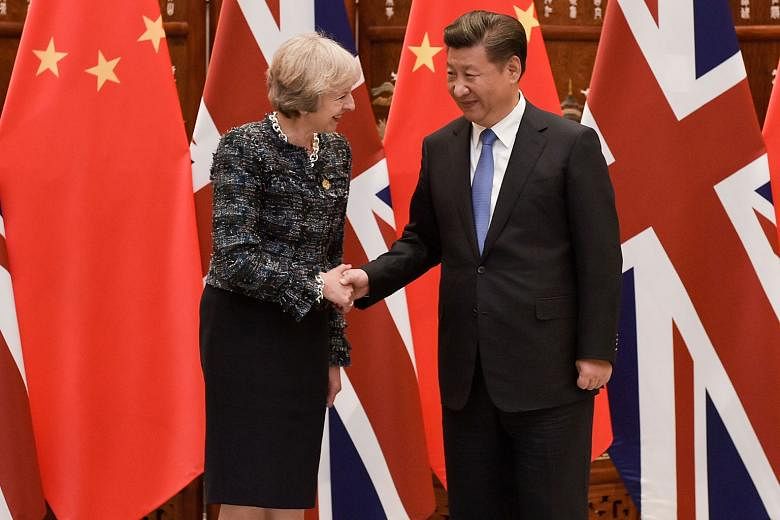British Prime Minister Theresa May arrives in China today for a three-day visit which will include trips to Shanghai and Wuhan to meet business leaders, as well as Beijing where she will hold talks with Chinese President Xi Jinping.
"My visit will intensify the golden era in UK-China relations," said Mrs May ahead of the trip, deliberately using the phrase invented by her immediate predecessor David Cameron, in describing links between Beijing and London. But her Chinese hosts don't appear to be persuaded by her reassurances that bilateral ties will continue to flourish. And neither are most of the British businessmen accompanying her on this voyage.
British trade with China has grown by 60 per cent since 2010, when the ruling Conservatives came to power. Yet, despite this spectacular rise, total two-way trade remains modest: it stands at around £60 billion (S$111 billion) a year with the Chinese taking in only 3.1 per cent of British exports, a figure which places China down in eighth place in the league of Britain's export markets.
Mr Cameron identified China as Britain's biggest trade opportunity; the Chinese are expanding their insurance and financial services sectors, areas where Britain has a huge advantage over other European nations. Chinese firms are looking for overseas investment opportunities and London, by far Europe's biggest finance centre, serves as an excellent staging post. Also, Chinese construction firms are keen to finance the sort of big infrastructure jobs Britain needs.
As Prime Minister, Mr Cameron had some notable successes in attracting Chinese business. Over two-thirds of all the Chinese investment capital coming to Europe flows through London; the Chinese national flag flying from the London headquarters of the Bank of China regularly casts an afternoon shadow over the adjacent Bank of England building.
More significantly, the Chinese are involved in building a nuclear power plant at Hinkley Point in the south-western part of Britain which, at a cost of £18 billion, is the most expensive electricity project in the world. But this is not only the biggest foreign commitment for the China General Nuclear Power Group, which will own a 33.5 per cent stake in the plant; it also provides marketing opportunities, since under the terms of the deal the Chinese are entitled to construct another nuclear plant in Britain, this time based on their proprietary Chinese-designed Hualong reactor prototype.
But unlike Mr Cameron, Mrs May has never hidden the fact that she sees China not only as an economic opportunity but also a strategic challenge. So one of her first moves after taking office was to order a full security review of the Hinkley project; the scheme is going ahead, subject to additional safeguards over the ability of the Chinese to plug into Britain's electricity grid.

The Chinese government was, of course, unimpressed. Nor was it amused by the postponements of Mrs May's planned visit; a previous date was scrubbed because the British Premier decided to hold a snap election, while a rescheduling to November last year fell through because Britain was planning to host US President Donald Trump.
To make matters worse from a Chinese perspective, British officials now emphasise that, after their country leaves the European Union, their urgent priority is to forge trade deals with the US, Japan and Australia, which between them account for over a fifth of all UK trade. Britain has also touted the possibility of becoming a member of the Trans Pacific Partnership.
Advisers close to Mrs May fervently deny any intention to downgrade relations with China; they point out that the retinue of businessmen accompanying her on the trip includes 50 top executives of Britain's top corporations.
Still, officials in London admit planning for the trip has not been easy, with the Chinese insisting the British Premier should officially acknowledge the significance of their One Belt One Road initiative and offer British participation, something Mrs May sees little point in doing. There is also the thorny issue of respect for the freedoms of Hong Kong, the former British colony, which some MPs in London have urged Mrs May to raise in talks with her Chinese hosts.
Naturally reticent, the British leader refuses to engage in the games of her predecessors by chasing new mega-billion trade contracts with China which may ultimately come to nothing.
Businessmen accompanying her often complain that they have little access to the Prime Minister, and see this trip as a test of whether she is able to promote trade. So at least in this respect, Mrs May has to impress not only her hosts, but also her domestic audience.


